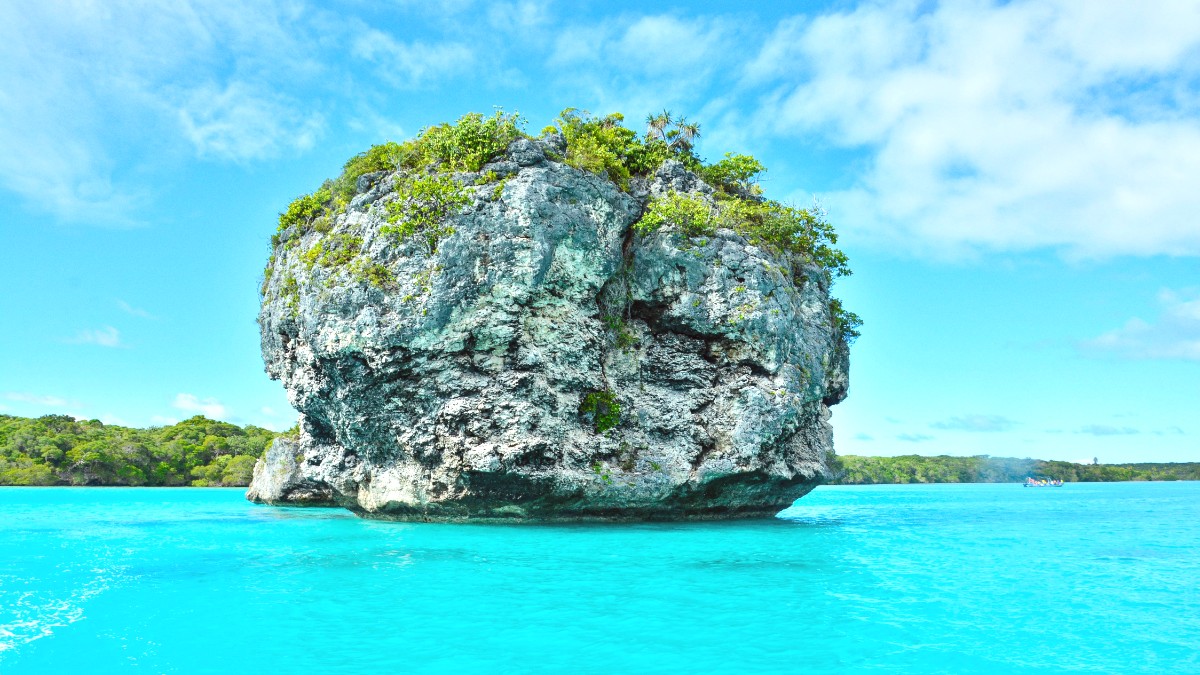
New Caledonia
New Caledonia, including Nouméa, maintains warm temperatures year-round. Climate patterns divide into two main seasons, each offering distinct conditions for visitors.
The Dry Season (May to November) brings cooler, drier, and sunnier weather, with average temperatures from 20°C to 25°C. Humidity stays lower, and rainfall remains minimal. This period is often considered the most pleasant. The Wet/Hot Season (December to April) brings higher temperatures, increased humidity, and more frequent rainfall, often as heavy showers. Temperatures range from 25°C to 30°C. Lush green landscapes appear during these months.
The dry season (May-November) generally offers the best underwater visibility for diving and snorkeling. Calmer seas and less freshwater runoff lead to clearer waters. For hiking and outdoor exploration, the dry season provides cooler temperatures and less slippery trails. Conditions are comfortable for extended walks and treks.
Beaches are enjoyable year-round. However, the dry season offers more consistently sunny days for sunbathing and swimming. Many local festivals and events occur during the cooler, drier months. Check the New Caledonia Tourism calendar for specific dates if cultural events pique your interest.
Tropical cyclones during wet season (Jan-Mar).
Dry season brings consistently clear weather.
Wet season features high humidity and frequent rain.
Book high season travel well in advance.
Shoulder season for more choice and fewer crowds.
High season typically has higher prices.
Consider specific activities for seasonal choice.
Best diving visibility in the dry season.
Freshwater runoff during wet season impacts dive visibility.
New Caledonia, as an overseas territory of France, broadly adheres to French visa policies. Specific niceties apply to entry. Citizens of the European Union, Schengen Area countries, United States, Canada, Australia, New Zealand, Japan, South Korea, and Singapore often do not require a visa for tourist or short business stays (up to 90 days within a 180-day period). Many other countries also have visa-free agreements. Review the official French government visa website or consult a French consulate or embassy in your country to confirm your specific requirements. Citizens of countries without visa-free agreements obtain a short-stay visa (Schengen Visa Type C) through a French consulate or embassy in their country of residence. Start this process well in advance.
Prepare these documents carefully before your trip: Your passport valid for at least six months beyond your departure date from New Caledonia, with at least two blank pages. Proof of a confirmed return or onward travel ticket. Demonstration of sufficient funds for your stay, like bank statements. Accommodation booking proof. Travel insurance, which may be mandatory for visa applicants, covers medical emergencies, repatriation, and trip interruptions. Passport-sized photos are also necessary for visa applications. No general entry fees for tourists. Immigration procedures are standard upon arrival at La Tontouta International Airport (NOU).
Check if your country has an agreement for short stays.
The main source for all visa information.
Direct contact for visa applications.
Consumer visa application service for assistance.
Direct visa and passport service website.
New Caledonia is generally an expensive destination. Costs are comparable to mainland France or Australia and New Zealand. Plan your budget carefully for your trip.
The official currency is the Pacific Franc (XPF or CFP Franc), fixed to the Euro at 1 EUR = 119.33 XPF. ATMs are widely available in Nouméan. Most hotels, restaurants, and larger shops accept Visa and Mastercard. Carry some cash for smaller purchases and local markets.
Tipping is not customary in New Caledonia. Service charges are often included in prices, especially in restaurants. Therefore, you do not need to leave an extra tip. Leaving a small gratuity (rounding up the bill or a few hundred XPF) for outstanding service in upscale establishments or for tour guides is appreciated. It remains a gesture of gratitude, not an expectation.
These resources can help you with essential travel services:
New Caledonia is generally safe.
No mandatory vaccinations, except Yellow Fever if from a risk country. Routine vaccinations are current. Consider Hepatitis A/B, Typhoid for extended stays. Consult a travel health professional.
Dengue fever is endemic. Use Insect repellent with DEET or picaridin. Wear long sleeves/pants at dawn/dusk. Sleep under mosquito nets if screens are absent.
The tropical sun is intense. Use high-SPF Reef-safe sunscreen. Wear a Wide-brimmed hat and sunglasses. Seek shade during peak sun hours. Stay hydrated.
Nouméa has modern medical facilities comparable to metropolitan France. Centre Hospitalier Territorial Gaston Bourret provides comprehensive care. Private clinics also offer services. Medical care costs are high. Comprehensive travel insurance with medical coverage and emergency evacuation provisions is . Well-stocked pharmacies are available in Nouméa.
Tap water in Nouméa is generally safe to drink. Consider Bottled water or using a Portable water filter for areas outside Nouméa or for added peace of mind. Food hygiene standards are generally good. Exercise caution with street food; ensure it is freshly prepared and hot. Wash all fruits and vegetables.
Marine hazards like jellyfish, stonefish, and cone shells can be present. Wear Water shoes on rocky beaches. Avoid touching marine life. Seek medical attention if injured by marine life.
Nouméa has a low crime rate. Pickpocketing and bag snatching occur in crowded tourist areas. Remain vigilant. A Travel money belt protects valuables.
Nouméan is generally safe at night. Avoid walking alone in poorly lit areas. Use taxis for late-night transportation.
Roads are generally well-maintained. Drive defensively. Adhere to local traffic laws. Watch for wildlife in rural areas.
New Caledonia can experience tropical cyclones during the wet season (November to April), with peak risk from January to March. Monitor local news and official advisories from Météo-France Nouvelle-Calédonie for updates. Hotels and local authorities provide guidance during such events. While rare, tsunamis are possible in this earthquake-prone region. If a tsunami warning issues, follow official evacuation procedures immediately. Be aware of strong currents when swimming outside designated areas; heed warning signs on beaches.